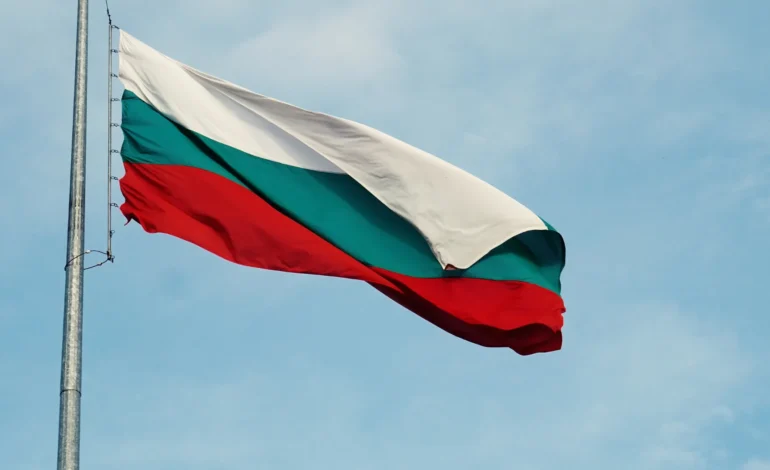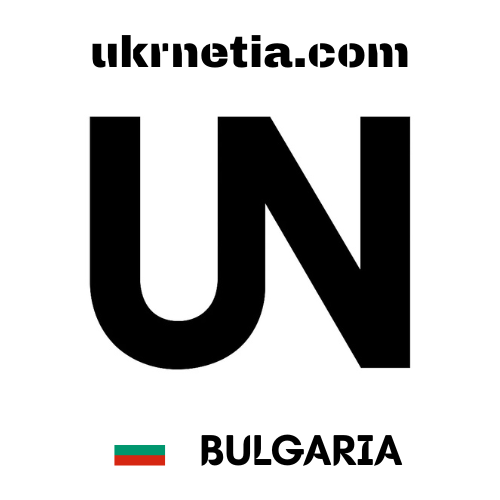Bulgaria’s Economic Crisis: Rising Debt and Declining Consumer Confidence

Bulgaria stands at a critical economic crossroads. The country’s debt reached BGN 48.846 billion (EUR 24 billion) in 2024, representing 24.1% of GDP, while the Ministry of Finance is pledging to accumulate 15 billion euros in new debt over four years, bringing total accumulated debt to 40 billion euros by 2028. This troubling trajectory coincides with consumer confidence dropping to -25.1 in the fourth quarter of 2025, marking the lowest reading since the third quarter of 2023. The government warns that if these borrowed funds are directed toward maintaining bureaucratic structures rather than productive investments, the economic situation will deteriorate further. This analysis examines the multifaceted dimensions of Bulgaria’s economic challenges and their implications for the nation’s future.
The Debt Spiral: Understanding the Numbers
Bulgaria’s debt situation presents a complex picture that requires careful examination. While the country’s debt-to-GDP ratio remains relatively modest compared to many European Union peers, the rapid acceleration of borrowing raises serious concerns about fiscal sustainability and economic priorities.
Bulgaria’s gross external debt reached €49.019 billion at the end of December 2024, representing an 8.7% increase year-on-year. This external debt figure is particularly significant because it reflects obligations to foreign creditors. Within this broader context, the gross external debt of the “General Government” sector reached €12.933 billion (12.6% of GDP) at the end of December 2024, increasing by €1.999 billion (18.3%) compared to December 2023.
The planned trajectory is even more concerning. By the end of the 2025-2028 period, aggregate interest payments for the four years will reach 4.5 billion euros. This represents a significant drain on public resources that could otherwise be directed toward productive investments in infrastructure, education, healthcare, and economic development.
The composition of Bulgaria’s debt provides additional insights into the country’s borrowing strategy. By lender, by the end of 2024, the largest share goes to the European Union (including the EIB and the EC) at 82%, with expectations for an increase in the share of loans from the Council of Europe Development Bank reaching 15.1% by the end of the period. This heavy reliance on EU funding sources reflects both the country’s membership obligations and the favorable terms available through European institutions.
However, the underlying issue is not merely the amount of debt but how these funds are utilized. The general government deficit rose to 3% of GDP in 2024, with permanent increases in pensions and wages, compounded by higher social benefits, continuing to impact expenditure. The government faces a critical choice: invest borrowed funds in projects that generate economic returns and improve productivity, or allow them to be consumed by the ever-expanding costs of maintaining the state apparatus.
The Investment Deficit: Where the Money Goes
The stark reality facing Bulgaria is that much of its borrowing is not translating into productive investment. This represents perhaps the most serious aspect of the current crisis, as it undermines the country’s long-term economic potential while simultaneously increasing its debt burden.
Investment declined by 1.1% in 2024 due to lower public spending, highlighting a fundamental problem: at a time when Bulgaria needs robust investment to modernize its economy and improve competitiveness, actual capital formation is moving in the wrong direction. This decline is particularly troubling given the country’s infrastructure needs and the imperative to close the development gap with Western European nations.
The allocation of public funds reveals worrying priorities. In line with policy changes legislated in 2022, permanent increases in pensions and wages, compounded by higher social benefits, continued to impact expenditure. While social spending serves important purposes, the permanent nature of these commitments creates rigidity in the budget and crowds out discretionary investments that could drive economic growth.
Political instability has significantly hampered investment planning and execution. Weak public and private investment, partly due to political uncertainty and delayed EU fund absorption, limited growth to 2.7%. Bulgaria has struggled to absorb available European Union funds efficiently, leaving billions of euros on the table while simultaneously taking on new debt to finance current expenditures.
The government has attempted to address this issue through various initiatives. In 2024 the government projected the economy would recover, achieving growth of 3.2 percent, as it has put in place a large-scale public sector investment program of $5.6 billion (BGN 10 billion) expected to make up for the loss in private investment. However, the implementation of such ambitious programs has been consistently hindered by bureaucratic obstacles, political gridlock, and institutional weaknesses.
Approximately one-third of the investments planned by the government for 2024 were allocated to infrastructure projects, with investments totaling 10 billion levs (5.1 billion euro) – a combination of European funding, projects financed with national resources, and a one-billion-lev fund for municipal projects. While this represents a significant commitment on paper, the translation of plans into completed projects remains problematic.
The bureaucratic burden represents a major obstacle to effective investment. In the early 1990s, the country’s slow pace of privatization, contradictory government tax and investment policies, and bureaucratic red tape kept foreign direct investment among the lowest in the region. While conditions have improved since that period, structural inefficiencies persist, consuming resources that could be directed toward productive purposes.
Eroding Consumer Confidence: A Symptom of Deeper Malaise
Consumer confidence serves as a crucial barometer of economic health, reflecting citizens’ perceptions of both current conditions and future prospects. The recent trajectory in Bulgaria paints a deeply concerning picture.
Consumer Confidence in Bulgaria decreased to -21.10 points in the third quarter of 2025 from -16.40 points in the second quarter of 2025, marking a continued deterioration in sentiment. More alarmingly, Bulgaria’s consumer confidence dropped to -25.1 in the fourth quarter of 2025, the lowest reading since the third quarter of 2023, as consumers continued to be pessimistic regarding the financial situation.
This decline is not merely a statistical abstraction but reflects real concerns among Bulgarian citizens about their economic circumstances. The January 2025 poll found that consumers’ opinions about the development of the general economic situation in the country over the last 12 months and their forecasts over the next 12 months were more pessimistic compared to the previous survey.
Several factors contribute to this pessimism. Consumers’ assessments and expectations about the changes in the financial situation of their households were more negative compared to October 2024, with consumers continuing to consider that over the past 12 months, there had been an increase in consumer prices. Inflation, even as it moderates from its peaks, continues to erode purchasing power and create anxiety about future price increases.
Employment concerns add another dimension to consumer anxiety. Regarding unemployment in the country over the next 12 months, the prevailing forecasts were that it would continue to increase. These expectations, whether fully justified or not, influence consumer behavior in ways that can become self-fulfilling prophecies, as households increase precautionary savings and reduce consumption.
The impact on spending behavior is evident. The January poll found a slight drop in consumers’ attitudes about being able to make major purchases of durable goods in the coming 12 months. This reluctance to make significant purchases affects economic activity across multiple sectors, from automotive to housing to consumer electronics, creating a drag on overall growth.
The breakdown between urban and rural populations reveals additional dimensions of the crisis. In January 2025, the total consumer confidence indicator dropped by 7.3 percentage points compared with October 2024, because of decreased confidence among both urban and rural inhabitants, by 5.2 and 12.6 percentage points, respectively. The particularly sharp decline in rural areas suggests that economic difficulties are felt most acutely outside major urban centers, potentially exacerbating regional disparities.
It’s worth noting that consumer confidence has shown some volatility, with brief periods of improvement. In April 2025, the total consumer confidence indicator increased by 3.1 percentage points compared with January. However, this modest uptick proved temporary, as subsequent data confirmed the resumption of the downward trend.
Political Instability: The Root of Economic Dysfunction
Perhaps no factor has contributed more to Bulgaria’s economic difficulties than its prolonged political crisis. The inability to form stable governments has paralyzed policy implementation, delayed crucial reforms, and undermined investor confidence.
The Bulgarian political crisis saw the country face seven parliamentary elections over four years: April 2021, July 2021, November 2021, October 2022, April 2023, June 2024 and October 2024. This extraordinary level of political instability has made consistent economic policy-making virtually impossible.
The roots of this crisis trace back to 2020. In 2020, a raid on the Bulgarian Presidency building was followed by mass protests against corruption and abuse of power. These protests reflected deep-seated frustration with governance failures and set in motion a political realignment that has yet to stabilize.
Various attempts to form governments have failed or produced only temporary solutions. The November 2021 election saw Kiril Petkov create an unstable government which lasted only 7 months. Even when coalitions have been formed, they have proven fragile and short-lived.
One particularly notable attempt involved a rotating government arrangement. It was planned that Nikolay Denkov of the PP-DB would be prime minister for nine months, and that Mariya Gabriel of GERB-SDS would take over in March 2024. However, this period of stability allowed GERB-SDS and DPS to repair their tarnished image and subsequently collapse the government by sabotaging the planned rotation in March 2024.
The consequences for economic policy have been severe. Almost four years of political squabbling impeded reforms and put much-needed absorption of EU funds at risk. The inability to maintain consistent government leadership has meant that crucial decisions on everything from infrastructure projects to regulatory reforms have been delayed or left incomplete.
Public trust in democratic institutions has eroded dramatically. According to 2023 Gallup International data, Bulgarians have the lowest trust in electoral integrity: only 10% of voters believe the country’s elections are fair. This profound disillusionment with the political system creates a vicious cycle, where cynicism about governance reinforces the very dysfunction that generates the cynicism.
The fragmentation of the political landscape has made coalition-building increasingly difficult. The repeated elections have left Bulgaria in political stagnation, with the lack of trust and strong divisions among parties preventing them from producing a stable government. The emergence of populist and nationalist parties has further complicated the political calculus, as these groups often oppose cooperation with established parties or hold positions incompatible with European integration.
Bulgarians are losing trust in their national government and institutions, especially the judicial system, ranking among the last in the world in Gallup’s National Institutions Index. This collapse of institutional trust undermines the social cohesion necessary for difficult economic reforms and creates an environment where short-term political maneuvering takes precedence over long-term economic planning.
The international implications are significant. Foreign investors remain concerned about rule of law in Bulgaria, citing as major challenges Bulgaria’s inconsistent record in regulatory and judicial enforcement, difficulty obtaining needed permits, unpredictability due to frequent regulatory and legislative changes, and an inefficient judicial system. These concerns directly impact foreign direct investment flows, which are crucial for a developing economy seeking to close the gap with wealthier European nations.
The Eurozone Aspiration: Opportunity or Mirage?
Bulgaria’s long-standing goal of joining the Eurozone adds another layer of complexity to its economic situation. While euro adoption could bring significant benefits, it also imposes constraints and demands that the country has struggled to meet.
Bulgaria fulfills the criterion on public finances, with the general government deficit expected to decrease to 2.8% of GDP in 2025 and remain at 2.8% in 2026. However, the government debt-to-GDP ratio increased from 22.9% in 2023 to 24.1% in 2024 and is expected to increase further. While these figures remain well below the Maastricht criteria thresholds, the trajectory is concerning.
The convergence process has faced repeated delays. Bulgaria aims to join the Eurozone on January 1, 2025, after joining the European Exchange Rate Mechanism in July 2020 and the EU’s Banking Union in October 2020. However, achieving the necessary convergence, particularly on inflation, has proven challenging.
Bulgaria initially missed its original date for joining the eurozone, and the new provisional target date has been set for January 1, 2025. The repeated postponements reflect the difficulty of maintaining the strict macroeconomic discipline required for euro adoption while simultaneously managing domestic political and economic pressures.
The benefits of euro membership are potentially substantial. Adoption of the euro will eliminate currency risk, reduce transaction costs with some of the country’s key European trading and investment partners, and provide Bulgaria greater influence in the development of EU-wide monetary policy. For a small, open economy deeply integrated with European markets, these advantages could prove transformative.
However, euro adoption also means surrendering monetary policy independence at a time when the country might benefit from flexible exchange rate adjustments. The currency board arrangement that has pegged the lev to the euro since 1999 means Bulgaria has already largely sacrificed monetary policy autonomy, but formal eurozone membership would make this constraint permanent and potentially more binding.
Structural Weaknesses: The Long Shadow of the Past
Bulgaria’s current difficulties cannot be understood without reference to deeper structural issues that have persisted since the post-communist transition. These long-term challenges interact with immediate crises to create a particularly difficult economic environment.
Bulgaria’s per-capita PPP GDP is about 70% of the EU27 average (2025), while the country’s nominal GDP per capita is about 43% of the EU27 average (2021). This substantial gap reflects decades of underinvestment, emigration of skilled workers, and productivity shortfalls that cannot be quickly overcome.
The demographic situation compounds economic challenges. Since 1985, the population has declined from about nine million to around 6.7 million, fueling a growing shortage of skilled labor. This population decline reflects both low birth rates and significant emigration, particularly among younger, educated Bulgarians seeking opportunities in Western Europe.
The legacy of corruption and weak institutions continues to burden the economy. Bulgaria, which joined the European Union in 2007, has struggled to meet the bloc’s anticorruption standards amid resistance from much of the political class. Corruption not only directly diverts resources but also creates an environment where economic decisions are made based on political connections rather than economic efficiency.
The judicial system’s weakness represents a particular concern. The European Commission and the Council of Europe have repeatedly expressed concerns over the judicial branch’s structure and governance. An independent, effective judiciary is essential for enforcing contracts, protecting property rights, and providing the legal certainty that investors require.
Reform efforts have achieved only limited success. During the period when Bulgaria managed to adopt an active pro-Western stance and advance judicial and anti-corruption reforms, this progress was only possible with support from political forces that themselves faced questions about corruption. The compromises necessary to achieve any reform have often limited the effectiveness of those reforms.
Social Implications: Living Standards Under Pressure
The economic difficulties facing Bulgaria translate into concrete pressures on citizens’ living standards, creating social tensions that further complicate the political and economic situation.
Further increases in social spending and public sector salaries are planned, particularly in sectors such as defense. While these measures aim to address legitimate needs, they also contribute to the fiscal pressures that necessitate increased borrowing without addressing underlying productivity challenges.
Income growth, while positive, has not kept pace with rising costs in many areas. The average gross monthly salary reached 2,468 leva (1,262 euro) in December 2024. While this represents improvement over previous years, it remains far below Western European standards and creates pressures for continued emigration.
Inflation has been a persistent concern. After averaging 13.0% in 2022 and 8.6% in 2023, inflation eased to 2.6% in 2024. However, increased indirect taxes, higher prices for electricity, utilities and food, and hikes in international tariffs are set to weigh on the economic outlook for 2025.
The impact varies significantly across different population segments. Rural areas and smaller towns face particular challenges, with limited job opportunities and declining public services. The concentration of economic activity in Sofia and a few other major cities creates regional imbalances that policy struggles to address.
Social cohesion faces strain from multiple directions. Economic anxiety, political disillusionment, and demographic change create an environment where populist appeals find receptive audiences. Of Bulgarians that continue to cast their votes, many are turning toward ultranationalist and far-right parties, whose vote shares have steadily risen and now for the first time reached over 20% of the combined vote.
The Path Forward: Difficult Choices and Uncertain Prospects
Bulgaria faces a series of difficult choices with no easy answers. The interaction between rising debt, declining confidence, political instability, and structural weaknesses creates a situation where solutions in one area may exacerbate problems in others.
The immediate priority must be stabilizing the political situation. GDP growth is expected to reach 2.8% in 2025 and 3.0% in 2026, driven by household consumption supported by rising incomes and credit growth, along with stronger government investment linked to EU fund deployment. However, achieving these projections requires a functioning government capable of implementing policies and absorbing available EU funds.
Fiscal discipline must be balanced against investment needs. The government cannot simply slash spending without considering the impact on growth and social stability. However, continuing to increase debt to finance current consumption rather than productive investment creates an unsustainable trajectory. The government has increasingly relied on new debt to finance its record annual budget spending, with plans to allocate an additional 7 billion lev (approximately $4.1 billion) in “off-budget” funds to subsidize state-owned entities.
Institutional reform remains essential but politically difficult. Strengthening the judiciary, reducing corruption, streamlining bureaucracy, and improving the business environment would all contribute to economic performance. However, such reforms threaten entrenched interests and require political will that has been in short supply.
The absorption of EU funds represents a critical opportunity. The EU has contributed some €16.3 billion to Bulgaria since its accession in 2007, but utilizing these funds effectively requires both technical capacity and political stability. Accelerating the implementation of EU-funded projects could provide the productive investment that the country desperately needs without adding to the debt burden.
Rebuilding confidence – both consumer and investor – will require demonstrable progress on multiple fronts. Citizens need to see that their economic situation is improving and that the political system can deliver effective governance. Investors need assurance that the rule of law will be respected, that regulations will be applied predictably, and that corruption will be effectively combated.
Comparative Context: Bulgaria in the European Landscape
Understanding Bulgaria’s situation requires placing it in comparative context. While many European countries face fiscal challenges, Bulgaria’s combination of issues is distinctive.
Bulgaria recorded a Government Debt to GDP of 24.10 percent of GDP in 2024, which appears quite favorable compared to many EU members. However, this relatively low debt ratio coexists with weak institutional capacity, limited fiscal space for countercyclical policies, and vulnerability to external shocks.
The country’s economic integration with Europe provides both opportunities and constraints. The Bulgarian economy is well integrated with the euro area through trade and investment linkages. This integration has brought benefits in terms of market access and investment flows, but it also means that Bulgaria is exposed to economic developments in its major trading partners.
Bulgaria’s experience contrasts with other post-communist EU members that have achieved greater stability and prosperity. Countries like Estonia, Poland, and the Czech Republic have navigated the transition more successfully, though they too face challenges. The divergence reflects differences in institutional development, political stability, and policy choices over several decades.
Conclusion: A Defining Moment
Bulgaria stands at a defining moment. The confluence of rising debt, declining consumer confidence, persistent political instability, and unresolved structural weaknesses creates a situation that demands urgent attention and decisive action.
The warning from government officials that borrowed funds must finance investments rather than bureaucratic maintenance is not merely technical advice but a statement about the country’s fundamental choices. Will Bulgaria use this period to build the infrastructure, institutions, and productive capacity necessary for sustainable prosperity? Or will it allow scarce resources to be consumed by current expenditures, perpetuating dependency and relative decline?
The answer will depend on factors both domestic and external. Domestically, political actors must find ways to overcome their divisions and form stable governments capable of implementing coherent policies. Citizens must hold leaders accountable while avoiding the siren song of populist solutions that promise easy answers to complex problems. Civil society, business leaders, and international partners all have roles to play in pushing for necessary reforms.
Externally, continued European integration offers Bulgaria’s best path forward, but only if the country can meet the obligations that membership entails. The postponed eurozone accession exemplifies the challenge: the goal is worthy, but achieving it requires discipline and reform that have proven elusive.
The economic statistics – debt levels, confidence indices, growth rates – tell an important story but not the complete one. Behind these numbers are millions of Bulgarians making decisions about their futures: whether to stay in their country or emigrate, whether to invest in businesses or hold cash, whether to participate in politics or withdraw in cynicism. The aggregation of these individual choices will determine whether Bulgaria reverses its current trajectory or continues to struggle.
History suggests that countries can overcome even severe crises when citizens and leaders commit to necessary reforms and accept short-term sacrifices for long-term gains. Whether Bulgaria possesses the political will and social cohesion to make such a commitment remains the central question facing the nation. The next few years will likely prove decisive in determining whether Bulgaria can fulfill its potential as a prosperous, stable European democracy or whether it will remain trapped in a cycle of dysfunction and disappointed hopes.
The stakes extend beyond Bulgaria’s borders. As an EU and NATO member situated at a strategic geographic crossroads, Bulgaria’s stability matters for European security and prosperity. The European Union’s credibility as a force for transformation depends partly on whether its newer members can achieve sustainable convergence with older members. Bulgaria’s struggle is therefore not just a national story but a European one, with implications for the continent’s future.
For ordinary Bulgarians, academic discussions of debt ratios and GDP growth offer cold comfort. They experience the crisis in daily frustrations: difficulty accessing quality public services, concern about their children’s futures, anxiety about retirement security. Addressing these legitimate concerns while implementing difficult but necessary reforms represents the core challenge facing Bulgarian leaders.
The path forward is clear in outline if difficult in execution: stabilize politics, discipline fiscal policy, accelerate productive investment, strengthen institutions, combat corruption, and restore citizen confidence. Each element reinforces the others; progress in one area facilitates progress elsewhere. Similarly, continued failure perpetuates a vicious cycle where economic weakness undermines politics, political dysfunction prevents economic reform, and both feed public cynicism.
Bulgaria has weathered crises before and emerged stronger. The country survived the tumultuous 1990s transition, recovered from the 1996-97 financial crisis, and navigated the 2008-09 global recession. Whether it can overcome the current multifaceted challenges will test the resilience of its institutions and the determination of its people. The answer will define Bulgaria’s place in Europe and the world for decades to come.










